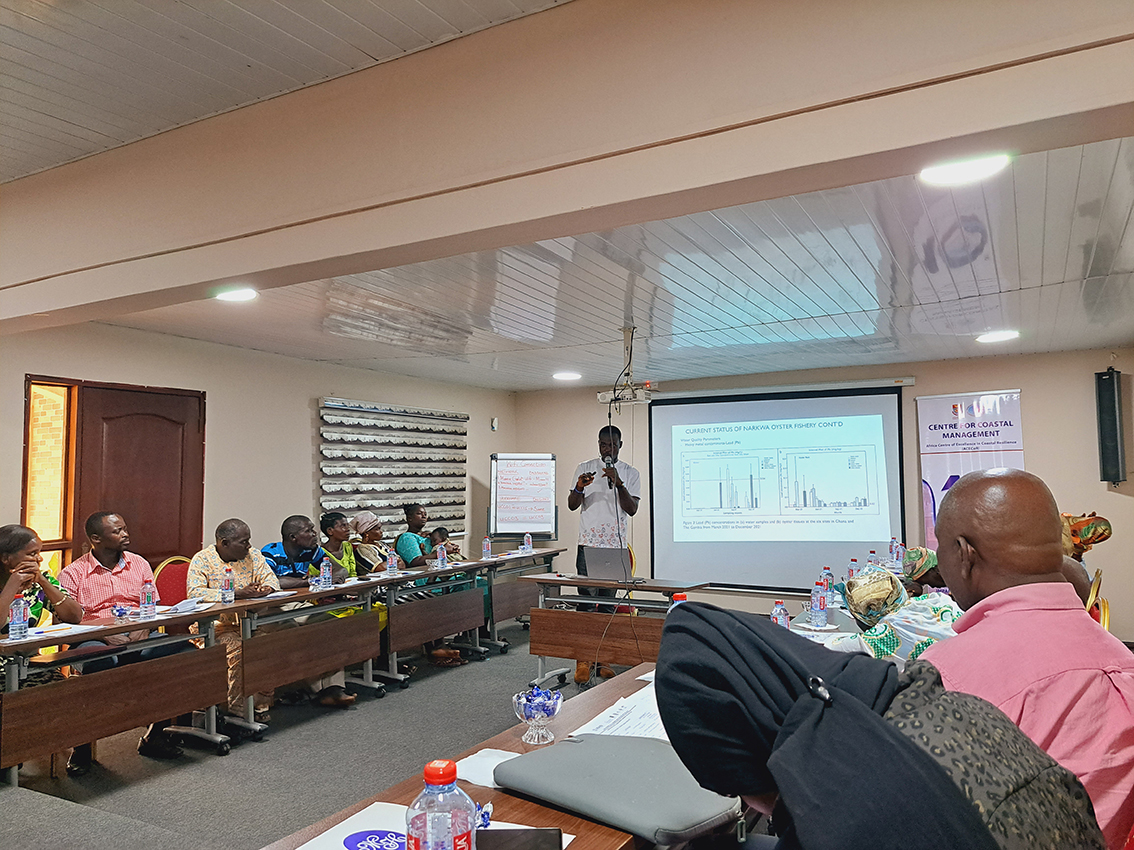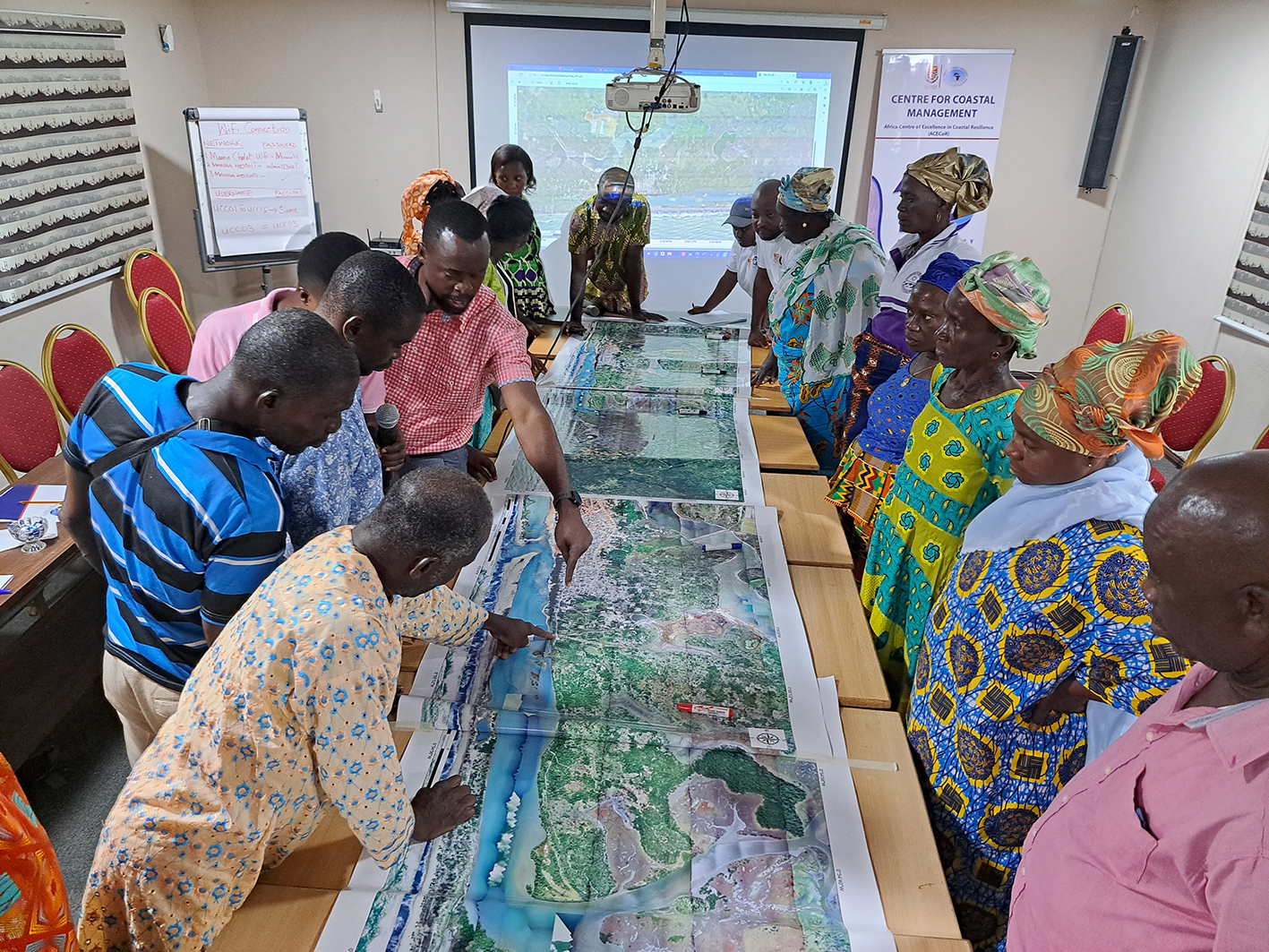Country
Profiles
Country
Networks
Country
Associations
- Date
Inception Meeting By Stakeholders Towards Oyster Fishery Co-Management at Ekumfi Narkwa, Ghana
By WA Shellfish Hub
In Ekumfi Narkwa, nestled within Ghana's Central Region, the wheels of progress are turning as the community embarks on the journey towards implementing an oyster fishery co-management plan. Inspired by the success stories of women-led initiatives in oyster co-management at the Densu estuary in Ghana and the Tanbi area in The Gambia, the West Africa Shellfish Knowledge and Outreach Hub (Shellfish Hub) is determined to replicate these initiatives to scale up oyster fishery co-management in other coastal communities across West Africa.
The overarching goal of the co-management plan is to ensure the sustainable management of oysters, as well as other bivalve shellfish and their interconnected ecosystems within the Narkwa lagoon. Facilitating this process is the Shellfish Hub at the University of Cape Coast, who are spearheading stakeholder engagement efforts.
The journey towards co-management began with a series of essential steps, including community entry, consultations with local chiefs and elders, and comprehensive sensitisation programs aimed at educating the Ekumfi-Narkwa community about the potential benefits of the Women Shellfishers and Food Security Project. Further consultations were held with relevant state institutions such as the Fisheries Commission (Central Region), the Ekumfi District Assembly, and the Forestry Commission to ensure alignment with existing mandates and regulations.

Practical activities ensued, including the formation of the Narkwa Oyster Harvesters Association and the utilisation of UAV mapping technology to delineate the oyster shellfishery area and its associated ecosystems. A pivotal moment arrived with the convening of a two-day workshop at the Manna Heights Hotel in Mankessim, on the 4th and 5th of May, 2023. Here, stakeholders engaged in a comprehensive situational analysis of the Narkwa oyster shellfishery, ultimately reaching a consensus on the imperative need for co-management.
Following the structured co-management planning processes outlined in the Women Shellfishers and Food Security Project toolkit, boundaries for the oyster fishery management area were demarcated, and in-depth stakeholder analyses were conducted. At the workshop's conclusion, a nine-member co-management planning committee was established, comprising representatives from various key stakeholders, including the Zonal Fisheries Officer, the Assemblyman of Narkwa, and members of the Narkwa Oyster Harvesters Association.
This committee is now tasked with leading the next phase of the Narkwa oyster co-management planning process, supported by the expertise and guidance of the University of Cape Coast and the Development Action Association (DAA). As the co-management processes progress, stakeholders are full of optimism and determination, fueled by the shared vision of sustainable resource management and community empowerment.

